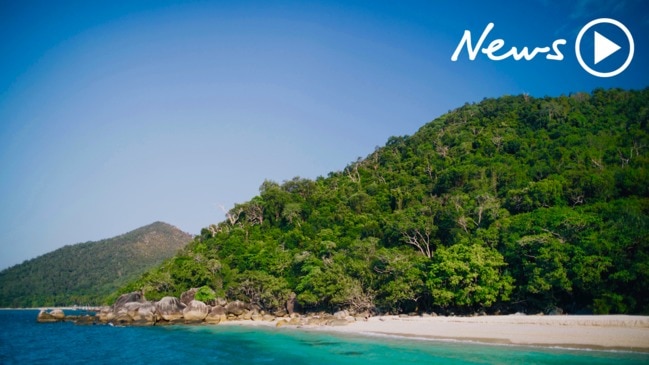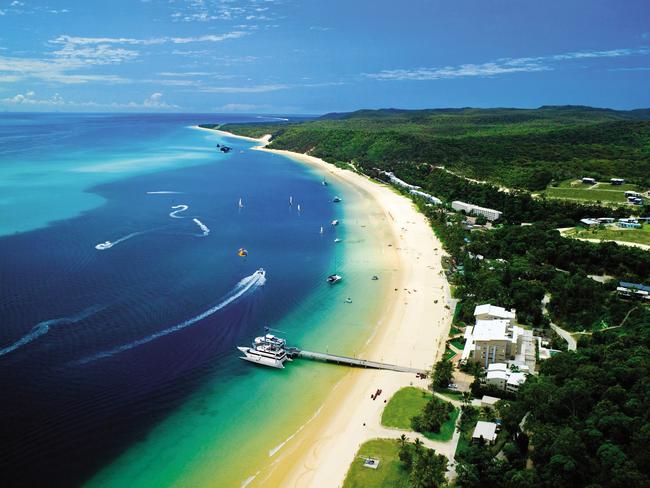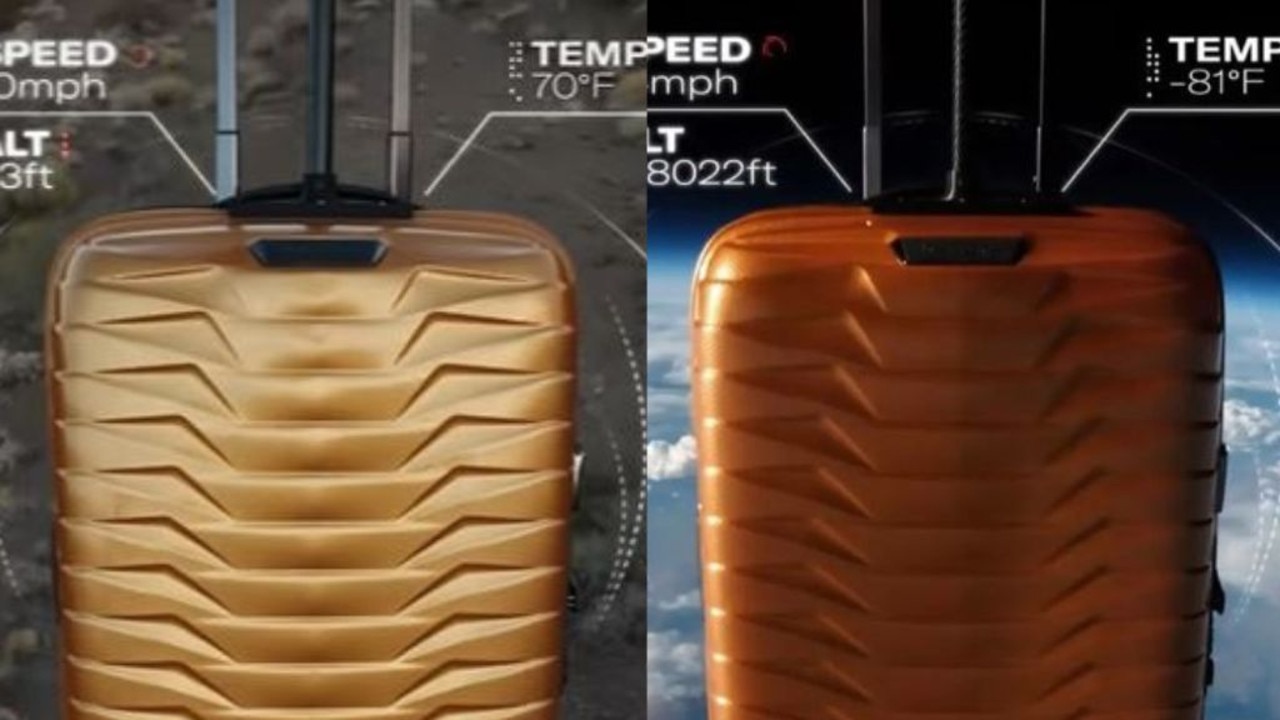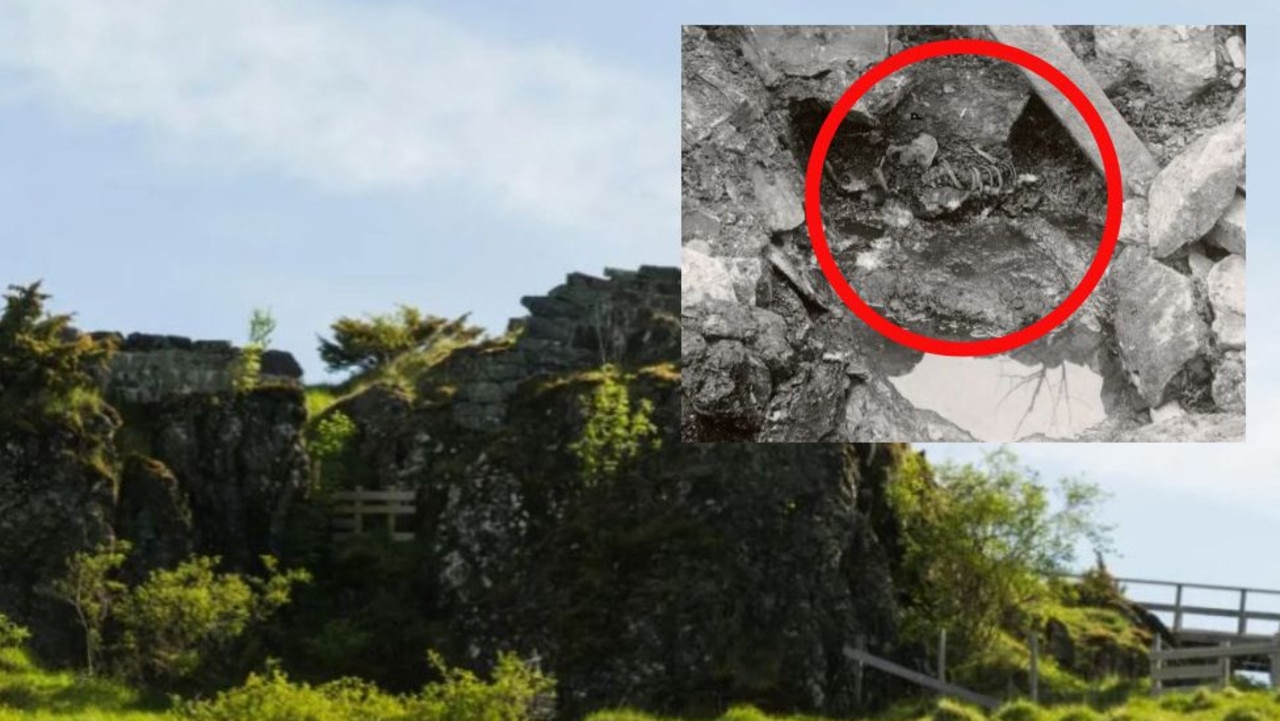Beach access rights: Is anyone allowed to actually own the beach?
A QUEENSLAND family was furious after being told at a resort to get off “their” section of private beach. But is there even such a thing?

AUSTRALIA is full of fancy and exclusive beaches, but most people think that as long as you’re in the water or on the sand, you’re free to frolic as much as you want.
Queenslander Lisa Wilkins was of that understanding when she and her family moored their boat off Tangalooma Island Resort on Moreton Island.
The Brisbane family members were walking out of the water on Good Friday when they were approached by a security guard and told they were on private property and had to move on.
The guard allegedly told them the resort, which is an hour away from Brisbane, possessed private rights to the beach and also had access to the water thanks to their partnership with cruise company P&O.
In a furious Facebook post last month, Ms Wilkins wrote: “Why is it so hard for Tangalooma to share the beach?
“Shame for blocking public access to what we pay for.”
Her post even inspired the creation of a Facebook page called “Tangalooma is a Public Beach”.

Speaking to news.com.au this week, the resort’s director David James said he believed the whole thing was a misunderstanding.
“We’re speaking to a number of government departments and trying to get exact clarification on what our land rights are.
“I understand she was just coming ashore with her daughter and the guard has obviously thought she was entering the resort and he’s told her it’s closed. There’s some miscommunication in there somewhere,” he said.
Mr James said the restrictions on entry into the private resort came down partially to safety.
The resort is often hosting more than 1000 people, and at times there are at least 400 people swimming in the water.
“We’re trying to figure out a safety aspect for the swimmers, of how can we control the mix of watercraft and swimmers in a practical and workable manner,” he said.
The resort offers free casual day passes where locals driving over from Brisbane can moor just out the front and use all of Tangalooma’s facilities for free.
The number of passes they offer differs depending on visiting cruise ships and how many people are staying in the resort.
Moreton Island boasts over 100km of coastline which Brisbane locals often pop over to explore.
The resort director said due to the huge number of beaches available for exploring, people rarely moor out the front of Tangalooma other than to visit the resort and use its facilities.
“I understand it’s a polarising issue and absolutely there should always be public access to beaches but there’s been a misunderstanding there with the guard probably thinking they’re coming in to the private resort,” he said.

NOBODY OWNS THE BEACH — EXCEPT THE CROWN
All of the beaches in Australia are technically Crown land, meaning they’re for public use.
As a general rule of thumb, any land that high tide touches — known as the high water mark — is Crown Land.
Laws vary in every state and territory and as sea levels rise, these laws are becoming even trickier for beachgoers and landowners to understand.
And it gets even more complex when those landowners build their homes and restrict access to the public section of the beach.
When people build on beachfronts, they’re awarded that section of land up to where high tide touches.
On the Gold Coast, for example, more than half of the city’s beachfront has been developed.
But if there’s an adverse weather event such as a cyclone, or the sea level rises past their property line, that land slowly becomes Crown Land — and the owner often doesn’t have a leg to stand on.
Few homeowners have been victorious when it comes to fighting the high water mark law, but sometimes it works in their favour.
In 2014, transport magnate Lindsay Fox successfully managed to expand his luxurious Victorian property onto a public beach in Portsea.
The billionaire businessman argued for years that because the high water mark had fallen and sand deposits had stuck, he was entitled to the extra land that had been created.

By the end of 2014, Mr Fox was granted a whopping 2400 square metres of extra land in one of the most expensive areas of Victoria.
The land added on to his Mornington Peninsula property is worth several million dollars.
At the time, Premier Denis Napthine furiously told the ABC “it’s a bit rich to claim beaches”.
But not everyone with beachfront property is as lucky as Mr Fox.
In 2013, residents in the NSW north coast town of Old Bar were told by the state’s Coastal Panel that they wouldn’t be allowed to build a seawall to protect their homes because it would have to extend onto public beach.
In an academic paper written for Bond University called “Whose Beach Is It Anyway?”, author Nigel Cartlidge said the ancient laws governing beach ownership and access were unable to meet the needs of current day society.
“Beaches have developed as cultural, recreational, restorative and social spaces in recent history. They require easy and unrestricted public access from the land. Ancient customs, laws and rights intended to allow the exploitation of the coastal resources do not meet the needs of modern societies, especially in urban areas,” Mr Cartlidge wrote.
In an article written for The Conversation, Australian Coastal Society patron Bruce Thom addressed the issues of climate change and beach access.
“It could be argued that our beaches should be enshrined as Crown Land held in trust by governments for the “public good” with unfettered right of access. This principle should be recognised in law in each state of Australia,” he wrote.
“We cannot afford to leave a legacy of restricted access or shores armoured by seawalls with no beach in sight.”




